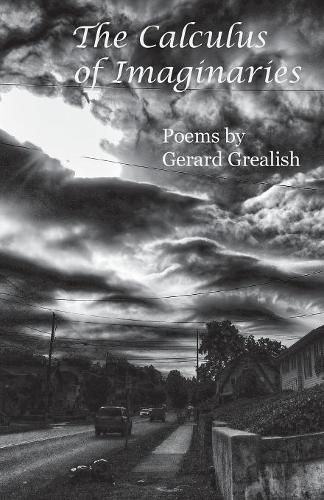Readings Newsletter
Become a Readings Member to make your shopping experience even easier.
Sign in or sign up for free!
You’re not far away from qualifying for FREE standard shipping within Australia
You’ve qualified for FREE standard shipping within Australia
The cart is loading…






This title is printed to order. This book may have been self-published. If so, we cannot guarantee the quality of the content. In the main most books will have gone through the editing process however some may not. We therefore suggest that you be aware of this before ordering this book. If in doubt check either the author or publisher’s details as we are unable to accept any returns unless they are faulty. Please contact us if you have any questions.
In The Calculus of Imaginaries, Gerard Grealish explores in poetry not only the elusive and transitory aspects of the physical world, but also our misperceptions of what reality is and the ramifications of discovering that it is otherwise, and largely unknowable. Within the uncertainties of such inner and outer worlds there emerges alternately from time to time a litany of anger, frustration, sorrow, guilt, pain, tragedy, and death, but also love and beauty. Addressing El nino, the climate phenomenon, as if it were indeed a child, Grealish asks in the poem El Nino 1997,
Whose child are you anyway? and receives in Spanish the answer I don’t know! I don’t know! finding the child’s words and inflections paradoxically beautiful. Such paradoxes abound as Grealish takes the reader in five sections through the Imaginary Roots of things and people, their existence as Infinitesimals,
The Transfer Principle that often reshapes them, the Impossible Conditions they are confronted with, and the Transcendent Curves that take them to another place. Grealish’s poetry in this volume metaphorically reenacts Webster’s definition of the book’s abstractly mathematical title, to wit: a method of investigating the nature of imaginary quantities required to fulfill apparently impossible conditions, using -1 [the square root of negative one] as a unit.
$9.00 standard shipping within Australia
FREE standard shipping within Australia for orders over $100.00
Express & International shipping calculated at checkout
This title is printed to order. This book may have been self-published. If so, we cannot guarantee the quality of the content. In the main most books will have gone through the editing process however some may not. We therefore suggest that you be aware of this before ordering this book. If in doubt check either the author or publisher’s details as we are unable to accept any returns unless they are faulty. Please contact us if you have any questions.
In The Calculus of Imaginaries, Gerard Grealish explores in poetry not only the elusive and transitory aspects of the physical world, but also our misperceptions of what reality is and the ramifications of discovering that it is otherwise, and largely unknowable. Within the uncertainties of such inner and outer worlds there emerges alternately from time to time a litany of anger, frustration, sorrow, guilt, pain, tragedy, and death, but also love and beauty. Addressing El nino, the climate phenomenon, as if it were indeed a child, Grealish asks in the poem El Nino 1997,
Whose child are you anyway? and receives in Spanish the answer I don’t know! I don’t know! finding the child’s words and inflections paradoxically beautiful. Such paradoxes abound as Grealish takes the reader in five sections through the Imaginary Roots of things and people, their existence as Infinitesimals,
The Transfer Principle that often reshapes them, the Impossible Conditions they are confronted with, and the Transcendent Curves that take them to another place. Grealish’s poetry in this volume metaphorically reenacts Webster’s definition of the book’s abstractly mathematical title, to wit: a method of investigating the nature of imaginary quantities required to fulfill apparently impossible conditions, using -1 [the square root of negative one] as a unit.